
Genre: Slice-of-life, Comedy, Cats
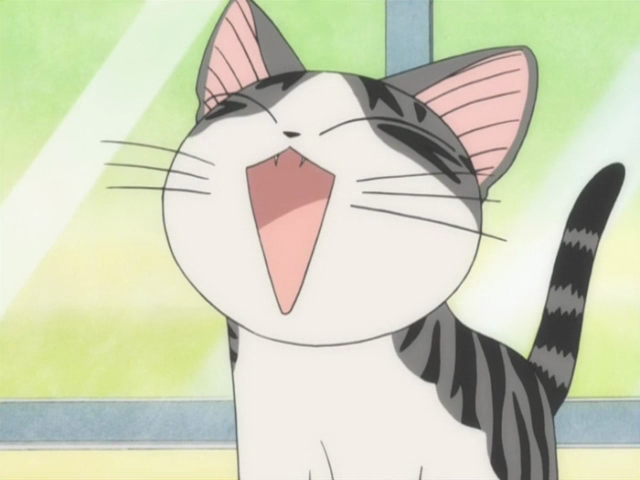
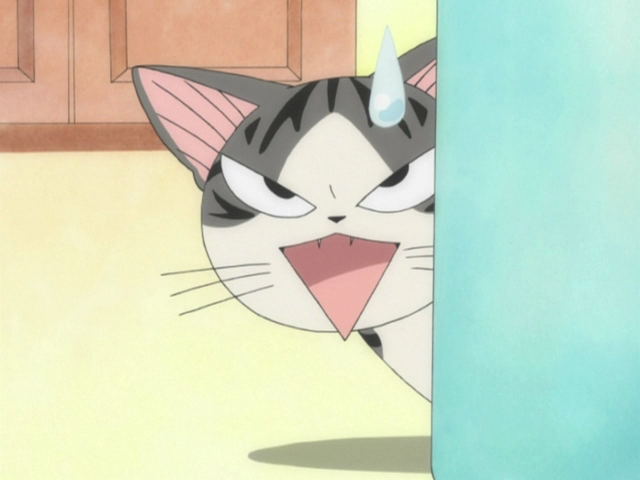
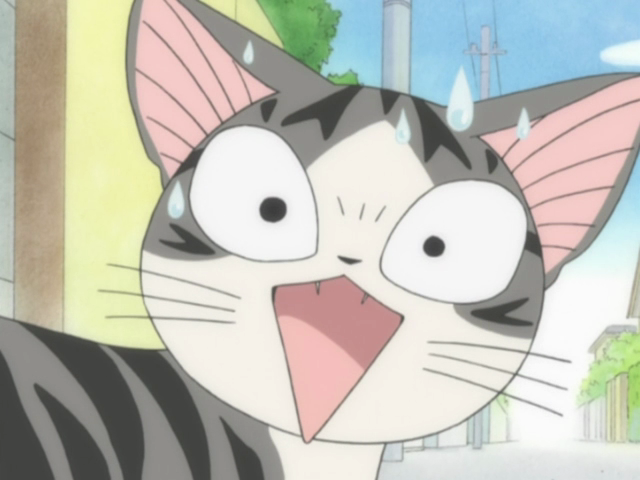
A lot of people tend to frown upon anime because it often times connotes animation, which is for the most part correlated with children's programming. I will always tell those people there are missing out on some quality shows because there is at least one series that will cater to their tastes. In the case of Chi's Sweet Home, even cat lovers are covered.
Story
While enjoying a walk outside, a fairly young grey and white kitten unfortunately strays away from her mother and becomes lost. Panicking and distrought, she is discovered by a young boy named Youhei along with his mother. They bring the kitten into their apartment complex, but pets of any kind aren't allowed. After several attempts to find a new home for the kitten, Youhei and his family decide to keep her, naming her Chi.A fairly simple plot, but suitable for an anime short with a slice-of-life angle. Most episodes will feature the daily musings of one family's first pet kitten while also delving into the psyche of a curious, rambunctious kitten. It will have you laughing, crying and awing all day. At first glance one wonders how a series could be focused around the day-to-day life of a cat, but in retrospect, it seems as though a cat's life is more fun and sometimes complicated than our own. As the series goes along, one may be conflicted as to whether she should go and find her mother or stay Youhei and her new family.
Characters
Chi: The centerpiece of the series. She's cute, lovable, and makes the silliest faces (above). There are too many screencaps I could have taken of her--bliss. Hilarity ensues when she taps into her natural sense of curiosity. 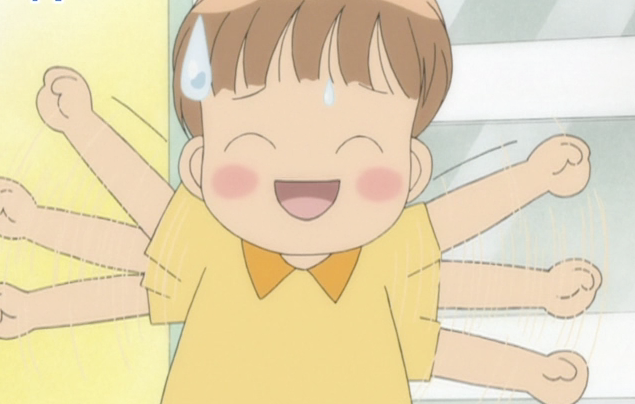 Youhei: A young boy probably no older than five years who ends up naming the kitten Chi. Don't expect too much from him; he's still a toddler. (Don't worry, he doesn't have six arms.)
Youhei: A young boy probably no older than five years who ends up naming the kitten Chi. Don't expect too much from him; he's still a toddler. (Don't worry, he doesn't have six arms.)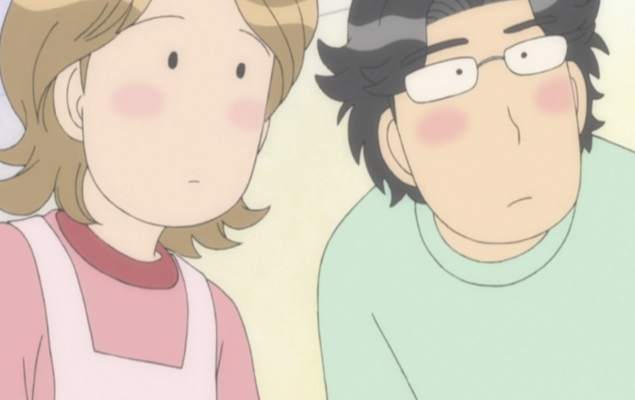 Mr/Mrs Yamada: Youhei's fairly generic parents. As far as the series is concerned, their first names are never made known. Mr. Yamada works as a graphic designer while the Mrs. is your average stay-at-home mom. It is quite hilarious seeing their antics during the episodes
Mr/Mrs Yamada: Youhei's fairly generic parents. As far as the series is concerned, their first names are never made known. Mr. Yamada works as a graphic designer while the Mrs. is your average stay-at-home mom. It is quite hilarious seeing their antics during the episodes Taking into account that this series comprises very short episodes, there isn't necessarily a need for intense dynamic character development. It's light-hearted setting and plot are just fine.
Voice Acting/Sound
Currently there isn't an English adaptation of the show (sorry dub fans), but the original Japanese voice actors for the series are quite decent. Some praise needs to go to Satomi Koorogi for her role as Chi; excellently voiced and I possibly couldn't grasp another way a kitten could be voiced. Many will notice her previous work as Ushio from Clannad, a compelling voice that will pull your heartstrings at times indeed. Considering the light-heartedness of this show, don't be expecting an orchestral masterpiece with this show, tracks will be recycled quite frequently but set the tone of each episode nicely.
Loved
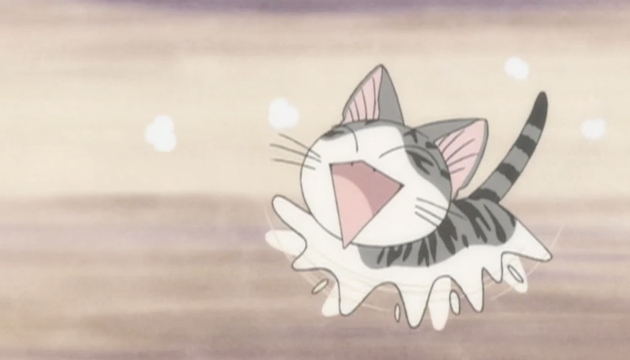 Chi's Expressions: As I said above, the multiple faces Chi makes throughout the series just put a smile on your face. One of my recurring favorites is when Chi completely goes apeshit excited (right).
Chi's Expressions: As I said above, the multiple faces Chi makes throughout the series just put a smile on your face. One of my recurring favorites is when Chi completely goes apeshit excited (right).
Crazy Cat Woman: In a few episodes where the Yamada family make a trip to the local pet store for food, litter, cat toys, etc, they will always come across a very eccentric/spontaneous cat woman. Her enthusiasm is just contagious to say the least.
Hated
Length: I try not to nitpick too much but because these episodes are only about two and a half minutes long; they left a lot to be desired. I'm not sure how these originally aired, but these episodes could have been extended to perhaps 8-10 minutes. Then again, one has to be mindful of the cuteness overload.
The Lowdown: If you have an affinity or attachment to cats, look no further and start watching immediately. The art style might turn off some, but the simple yet at times heartwarming story makes it accessible to audiences of all different backgrounds. Watch it in small doses as intended; one might go crazy from overwhelming cuteness.
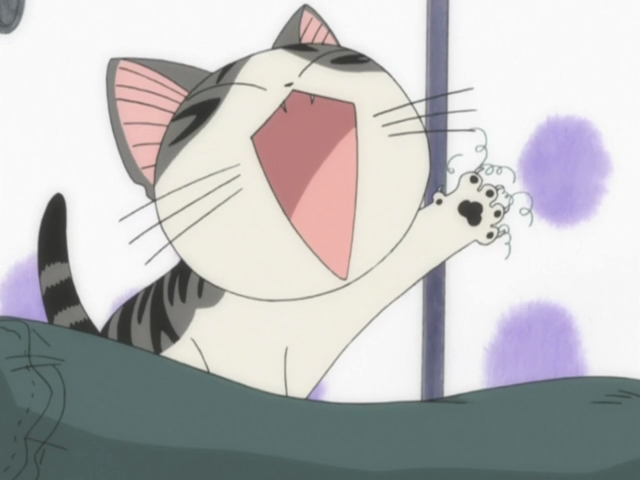


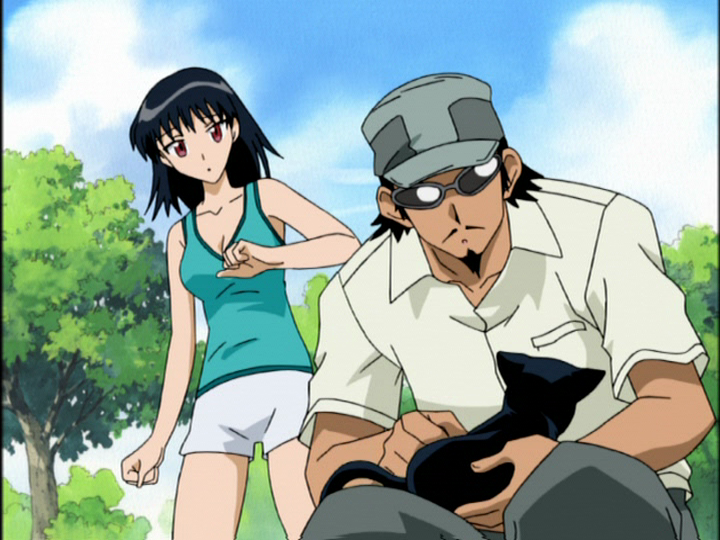
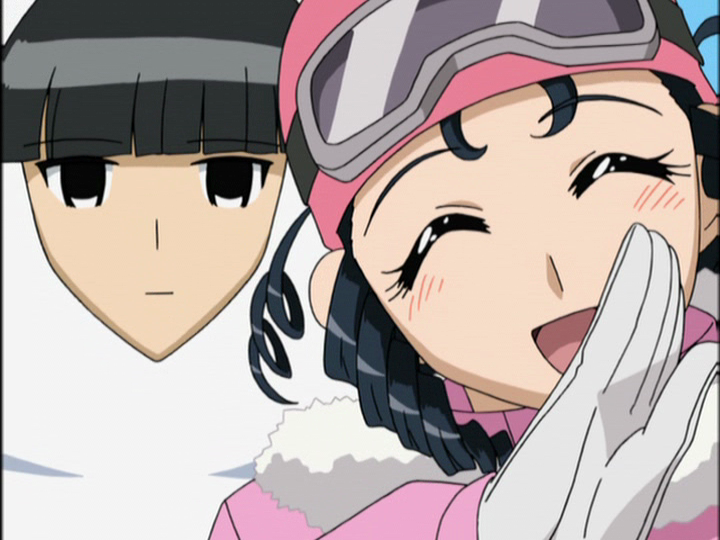


 Tsukamoto Tenma: The focal girl of the series; she's just hilarious. An airhead most of the time, her random antics and outbursts make her a treat to watch. There's never a dull moment with Tenma to say the least.
Tsukamoto Tenma: The focal girl of the series; she's just hilarious. An airhead most of the time, her random antics and outbursts make her a treat to watch. There's never a dull moment with Tenma to say the least. 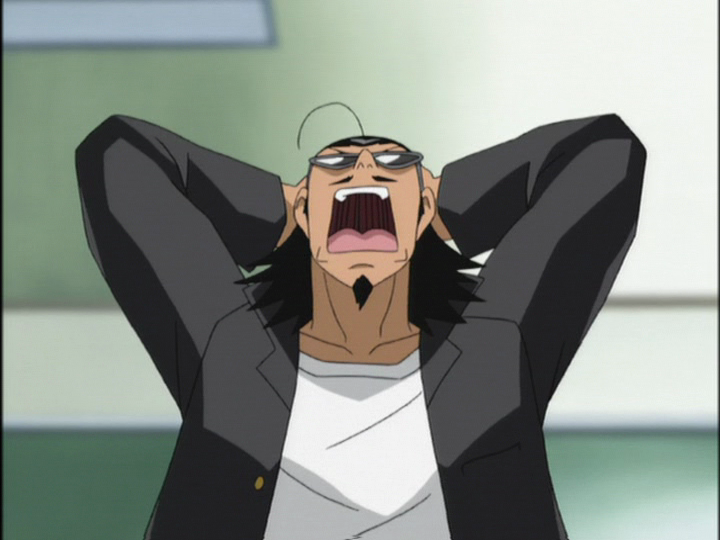 Harima, Kenji: The focal guy of the series. Equally hilarious. What makes him likeable is his unwavering adoration for Tenma. Outside his tough and unsocial exterior is a thoughtful, strong-willed, misunderstood fool. A heavy case of tunnel vision and denseness makes Harima the butt end of numerous jokes. Not enough can be said about him.
Harima, Kenji: The focal guy of the series. Equally hilarious. What makes him likeable is his unwavering adoration for Tenma. Outside his tough and unsocial exterior is a thoughtful, strong-willed, misunderstood fool. A heavy case of tunnel vision and denseness makes Harima the butt end of numerous jokes. Not enough can be said about him.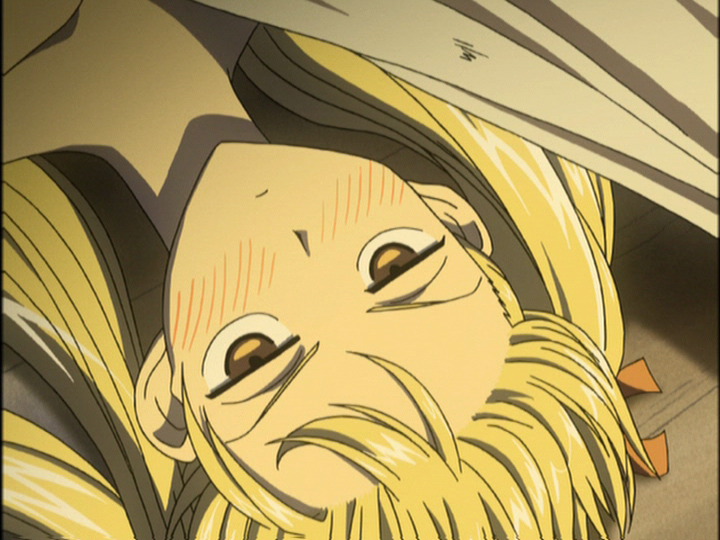 Sawachika, Eri: One of Tenma's friends who unexpectedly and unwillingly develops a crush for Harima. Born into a rich, high-class family, she is pretentious and has a unhealthy sense of entitlement. It goes without saying that she has some internal issues. Aside, she has her own quirks and charm which make her a fun character to watch.
Sawachika, Eri: One of Tenma's friends who unexpectedly and unwillingly develops a crush for Harima. Born into a rich, high-class family, she is pretentious and has a unhealthy sense of entitlement. It goes without saying that she has some internal issues. Aside, she has her own quirks and charm which make her a fun character to watch.  Dojibiron/Hacchake Basket: The series featured numerous parodies, but two stood out above the rest. To be honest, I wouldn't mind watching a spinoff series of these. The former is your typical
Dojibiron/Hacchake Basket: The series featured numerous parodies, but two stood out above the rest. To be honest, I wouldn't mind watching a spinoff series of these. The former is your typical 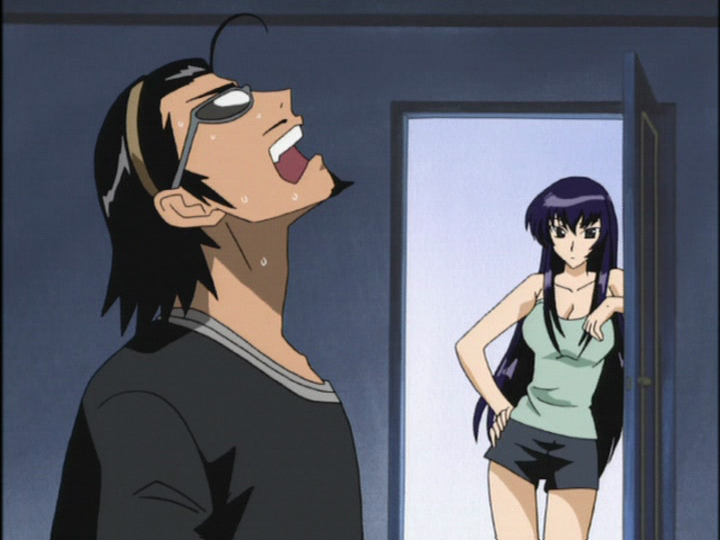 Unrequited Love: As much as I love School Rumble, nothing really pans out in terms the relationships within the entire cast. The third 'season' OVA attempts to tighten loose ends on the love story, but essentially it is all for naught. Those looking for a Hollywood-romantic-comedy-type ending should look elsewhere. As a slice-of-life anime, it follows suit in which nothing significant will happen--just enjoy the ride.
Unrequited Love: As much as I love School Rumble, nothing really pans out in terms the relationships within the entire cast. The third 'season' OVA attempts to tighten loose ends on the love story, but essentially it is all for naught. Those looking for a Hollywood-romantic-comedy-type ending should look elsewhere. As a slice-of-life anime, it follows suit in which nothing significant will happen--just enjoy the ride. 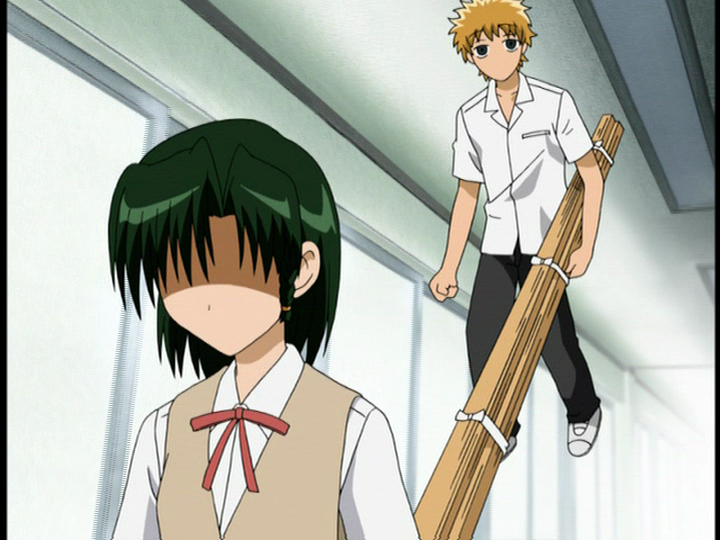

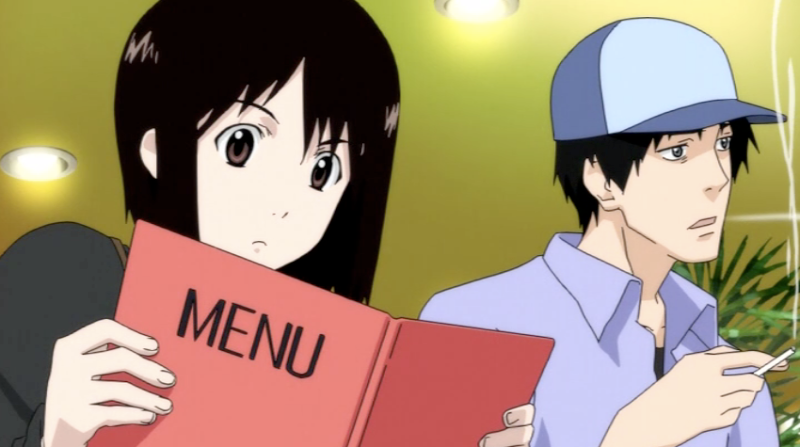

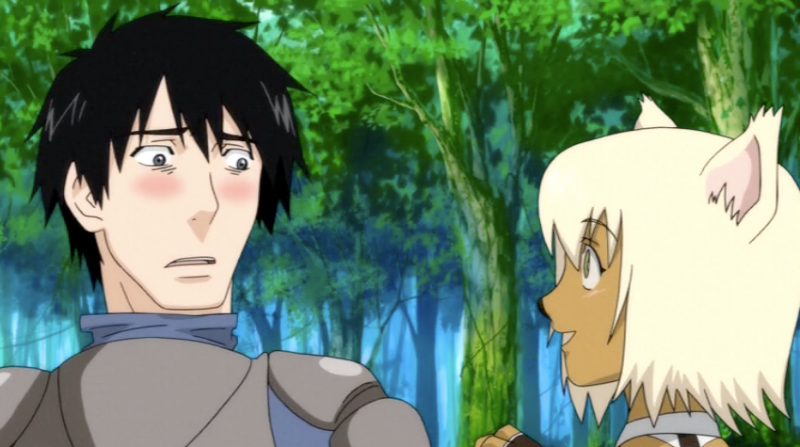

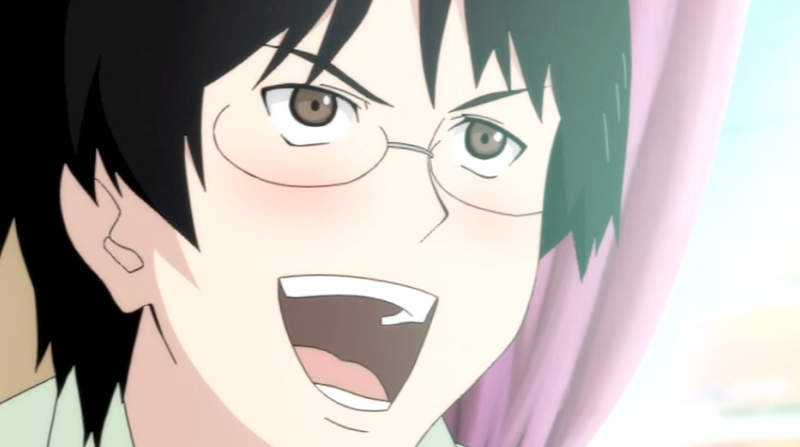 Yamazaki, Kaoru: Sato's high school acquaintance, he is your typical
Yamazaki, Kaoru: Sato's high school acquaintance, he is your typical 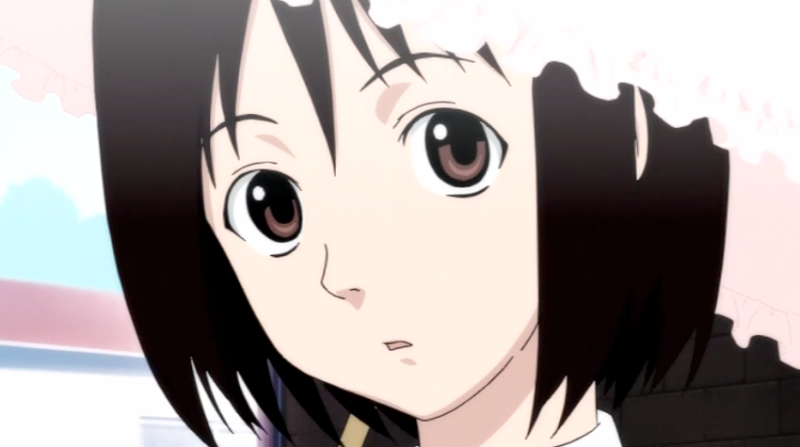 Nakahara, Misaki: After her first encounter with Sato, she presents him with a proposal to help him rid of his hikikomori ways. Mysteriously nice and upbeat most of the time, her motives for helping Sato are unknown for most of the series. Cute, nice, and delightful, most would call her wifey material.
Nakahara, Misaki: After her first encounter with Sato, she presents him with a proposal to help him rid of his hikikomori ways. Mysteriously nice and upbeat most of the time, her motives for helping Sato are unknown for most of the series. Cute, nice, and delightful, most would call her wifey material. 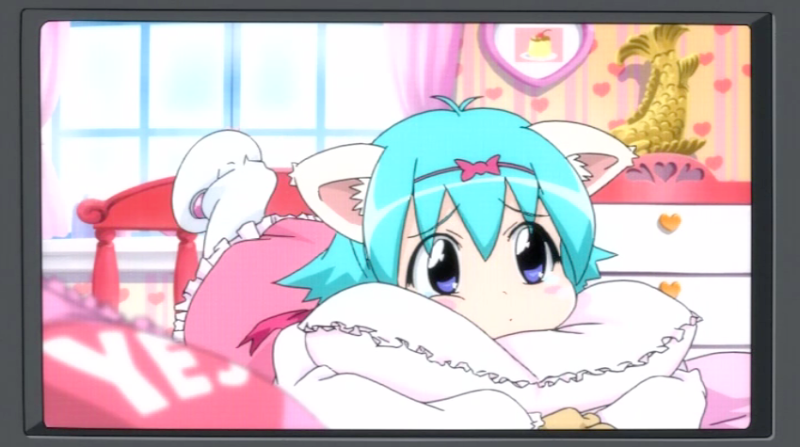 Pururin Anime: Simply a parody of other
Pururin Anime: Simply a parody of other 